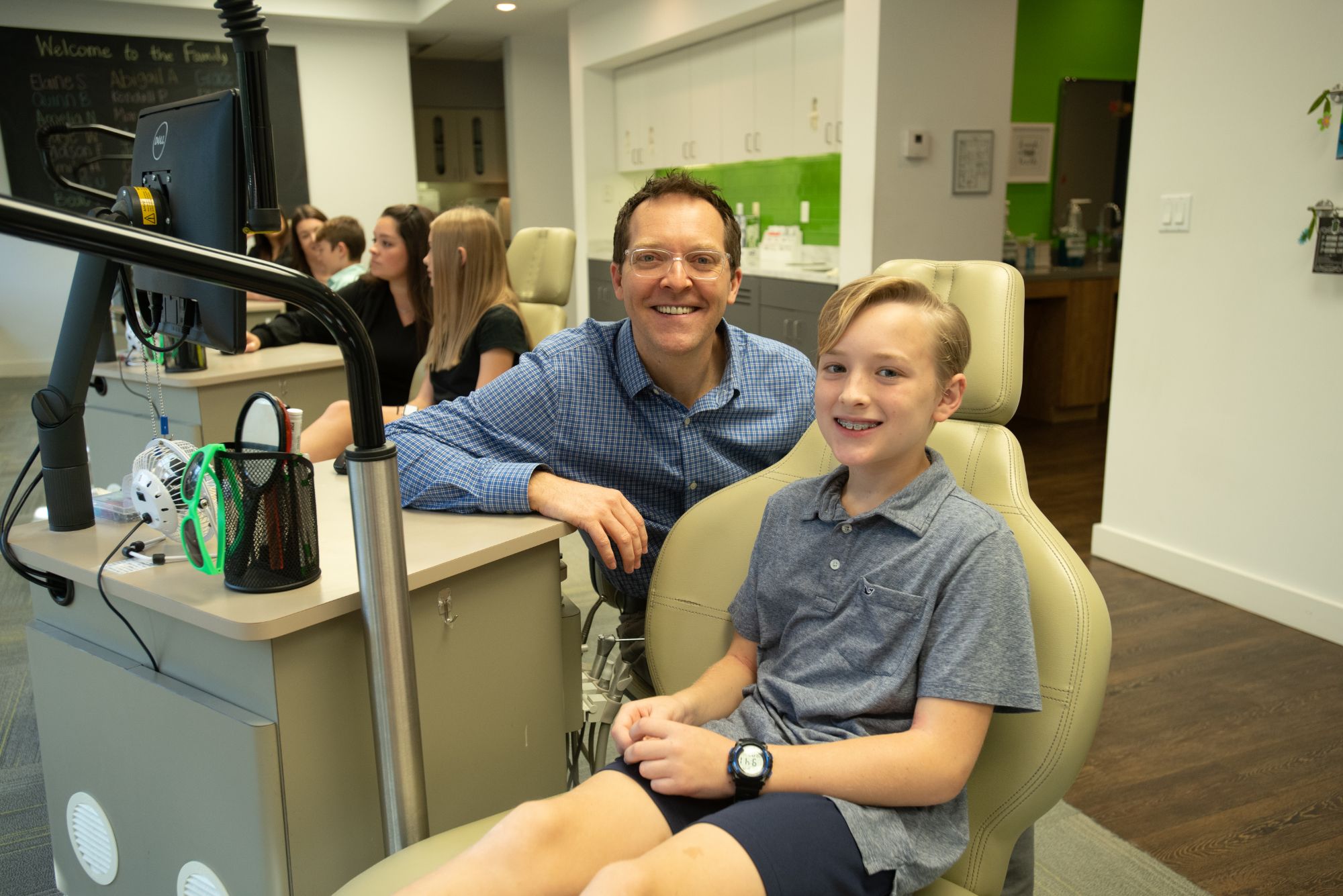Sports can be a huge part of a student’s life—or even an adult’s! You might be curious about what happens when you add braces to that equation. Hunter Family Orthodontics is here to answer this common question: Can I still play sports with braces?
The Components of Braces
Knowing the components of braces can help with understanding the risk of damage. These appliances have a few key parts, all of which can be vulnerable.
- Brackets are square-shaped attachments bonded to the front of each tooth, serving as anchors for wires.
- Wires connect the brackets and apply pressure to the teeth to guide them into alignment. These wires are adjusted regularly throughout the treatment process.
- Elastics can be attached to the brackets to provide additional force to specific teeth. Bands are larger elastic pieces that help more with the jaw.
Which is Which
Let’s go over a variety of sports, the risks associated with them, and how a mouthguard can be the key to avoiding injury with braces.
- Contact Sports:
- Football poses a high risk of impact and collision, making a mouthguard absolutely essential to players with braces.
- Basketball also involves the risk of collisions, as well as frequent contact.
- Hockey already provides players with full face masks or shields that provide additional protection to the face and mouth. However, a mouthguard is still key, as these injuries can be especially violent.
- Combat Sports:
- Boxing and other sports that involve direct blows to the mouth necessitate mouthguards.
- Martial arts such as karate, taekwondo, and judo also require protection against accidental impacts and strikes.
- Non-Contact Sports
- Running is relatively low-risk for those with braces, but it could be smart to wear a mouthguard while training or during events where falls or collisions could occur.
- Swimming is also generally safe—but caution should be used to avoid accidents around pool edges and diving boards.
- Cycling is a low-impact sport, but mouthguards are wise during races and mountain biking activities.
- Racquet Sports
- Tennis players should wear mouthguards during matches and practice sessions to avoid impact with the ball or the racquet. Again, the velocity involved with these injuries can make them especially severe.
- Team Sports
- Soccer can make players susceptible to injury from the ball or other players.
- Volleyball can also be a hotspot for sports injuries based on the positions of the players.

The Smart Way to Play
The short answer is that yes, you can play sports while wearing your braces—but there are some conditions to follow to ensure you don’t face any issues. You’re protecting your teeth as well as your braces.
- Wear a Mouthguard: Invest in a mouthguard designed for athletes with braces. They provide extra cushioning to protect you during impact. This means injuries to the lips, cheeks, tongue, and braces should you experience a blow to the face.
- Choosing the Right Mouthguard: Your choice should be specifically for braces. They have a special design that accommodates the brackets and wires, providing a comfortable and secure fit. Avoid using standard mouthguards, as they may not fit properly over your braces and can cause discomfort or other types of injury.
- Consistent Use: Always keep the mouthguard in during sports, even during practice sessions. Accidents can happen at any time.
- Replace it Regularly: Check the mouthguard routinely for signs of wear and tear, like cracks or deformation. Having a damaged, warped mouthguard can compromise its ability to protect your teeth and braces.
- Communicate with Your Coach: Your coach or instructor should always be informed of any concerns you may have with your braces and how they relate to physical activities. They might modify drills or exercises to reduce the risk of injuries to your mouth.
- Be Mindful of Contact: It may be challenging to remember at the moment but try to be mindful of your mouth as an area of risk during contact. Avoid situations and maneuvers that put you in harm’s way.
For further details on what kind of mouthguard to get and the best places to find them, you can ask Dr. Hunter. He’ll be able to give you personalized advice based on your condition.

Best of the Best
If you’ve recently gotten braces and are also an athlete, do not be discouraged. There are countless people around the world who make this combination work—but it takes a lot of attention and discipline. Our youngest patients may have the hardest time adhering to some of these rules, but that’s where we come in as experts to help steer them in the right direction. If you or your child are interested in orthodontic treatment, call our Woodlands office at 281-306-5947 to schedule your free consultation today!

